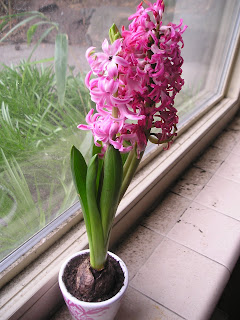
Yesterday I decided that nothing less than chocolate chip cookies and W.H. Auden's Collected Poems (to be enjoyed separately) would do.
It's funny to think how few people, Americans at least, read alternative literary forms like poetry or plays or even short stories. I suppose there is something about the generosity of a novel which grabs the attention, invites involvement and requires time and commitment. The time and commitment required by poetry is less popular, and I'll admit to a certain toe-dragging reluctance when it comes to chewing on a book of poetry.
I end up using a book of poetry as a Sortes Virgilianae, the classical lottery practiced by flipping through Virgil's Aeneid at random and reading your future in whichever random paragraph you land on. A bad habit, I will flip through the poems until something catches my eye or seems to fit the moment.
However, I think reading good, sharp poetry and plays can only do good for one's writing. The articulacy required by drama combined with the poetic focus on the sensuous, or at least the artistic. It is a joining of aesthetics with characterization and exaction, and this combination can only make one think very carefully about language and its specifics.
But poetry is more than an intellectual pay-off, more than a food to be mashed up, recycled and put immediately to use. It is - I think - chiefly about pleasure. The pleasure of a well-tuned phrase, a cleverly articulated idea or form, or pure aural languor. It is, says the doomed poet John Keats in Jane Campion's recent film Bright Star, like diving into a lake. The point of diving into a lake is not to swim to the other side, but to be in the water.
So, since April is poetry month (breeding/ Lilacs out of the dead land, mixing/ memory and desire...) it is my goal to read as much poetry as I can during the month. I have so much sitting on my shelves - beautiful WASP-y Anne Sexton and sensual, fruity Pablo Neruda and crisp, autumnal Philip Larkin and bubbling, sibilant e. e. cummings and perhaps even Paradise Lost - to read.
I will also make an effort to memorize poetry. So far I've tried Yeats' Leda and the Swan and Donne's holy sonnet, At the Round Earth's Imagined Corners, and stray lines crop up in brain while I'm walking to the grocery store - A sudden blow: the great wings beating still...and Arise/ From death, you numberless infinities...
As I sat on the 71 bus to 65th and 25th, I clutched Auden in my hands and set the plate of napkin covered cookies on my lap. As I stood to disembark and walked to the doors, I noticed the warm, familiar smell of childhood and chocolate-chips spreading out around me. The words followed.
Comments
I admit to being one of those who don't read poetry as often as I should. Presently, however, I'm enjoying William Cowper's 'The Task'. His languid descriptions of the English countryside are seasonally appropriate - though geophrically inappropriate (for me, at least).